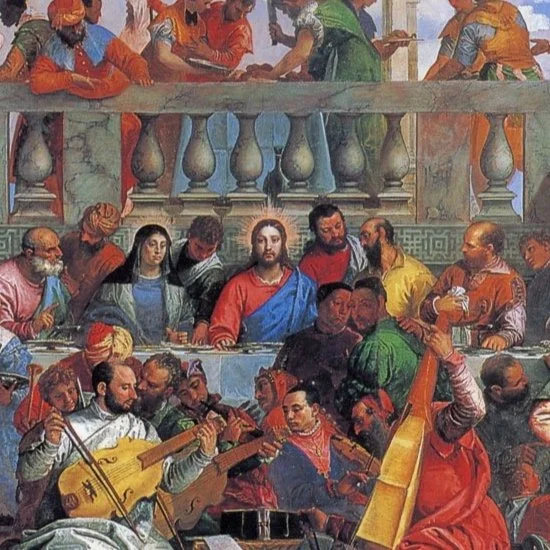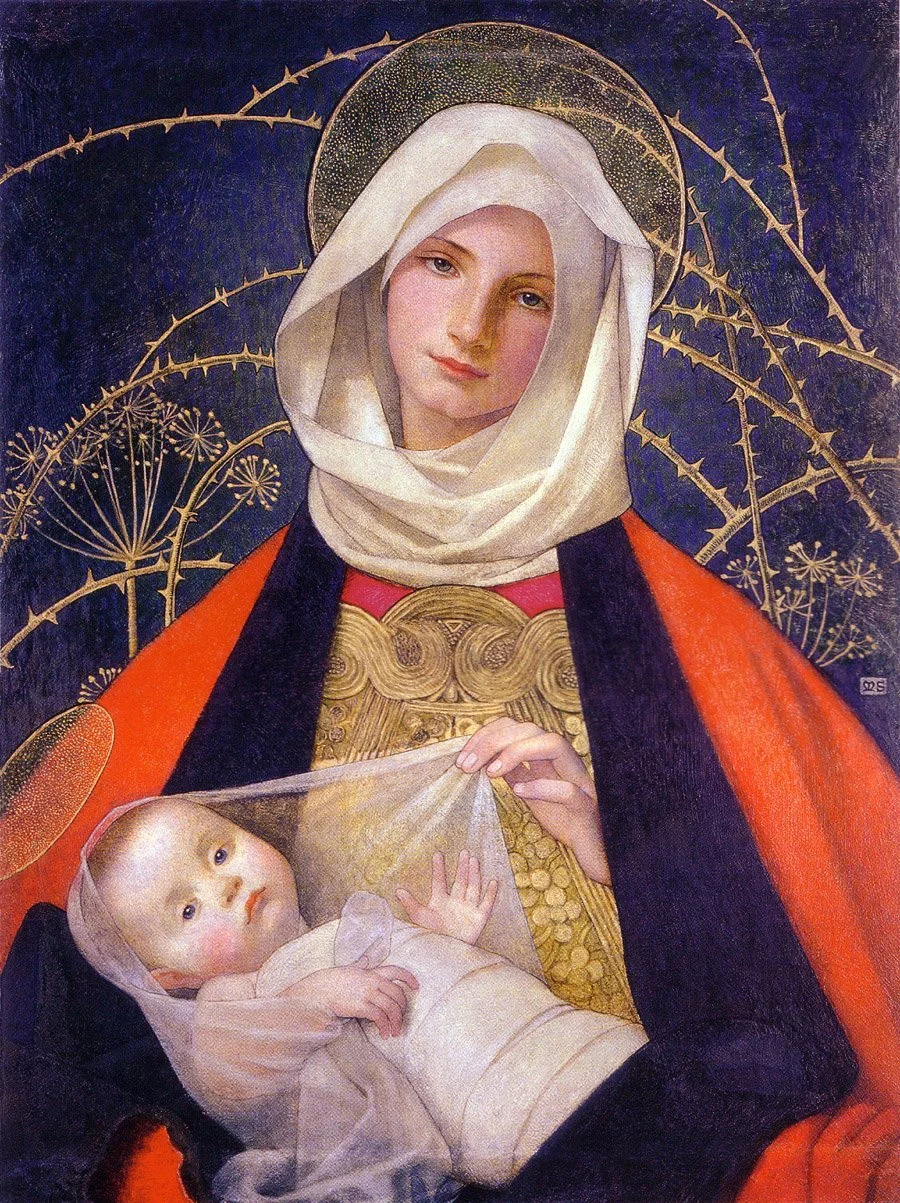Third Sunday in Ordinary Time
/Dominica III per Annum C
23 January 2022
After the conclusion of a meeting of various local pastors of different denominations years ago, several of us were sitting around just visiting. As our friendly conversation was wrapping up, I said something about having to get back to the parish to finish up some plans for a Bible study. The Baptist pastor said to me, with a wry grin: “Oh, you all study the Bible?” Now, I want to make clear that we were all friends and this was all good-natured jabbing at each other. So, I looked at him, acting surprised, and said, “Well, of course, we do. It’s a Catholic book!” Now that should not be controversial. But let me say it again. In all truth, the Bible is a Catholic book. No one has a Bible they can hold and use, except thanks to the faith and dedication of the Catholic Church who received the Jewish Scriptures together with New Testament writings, and after scrutiny by those with apostolic authority from Jesus, decided which books fit with the received faith, and compiled it all together into the one book we call the Bible. Due to the readings this Sunday that show us rich use of reading God’s Word in worship and in a liturgical setting, we can appreciate the important place of the Word of God in our life as Catholics. Scripture is a rich treasure of our faith that helps us build a relationship with Jesus. We are fools if remain ignorant of Scripture. As St. Jerome famously said, “Ignorance of Scripture is ignorance of Christ.”
The readings this week provide us an important lesson about a critical foundation for the good of our spiritual lives. In the Old Testament reading, God’s people gather for worship and are instructed extensively from the book of God’s law (the Scriptures as they existed at that time). The people listened attentively and heard a message that confronted them to more faithful living; a message that convicted them of their complacency, their sin, and their tendency to practically forget to allow God’s law to lead all their daily actions. Our worship, too, is composed of gathering to listen extensively to God’s Word. We are called to listen attentively, to put away distractions and other pursuits, and to focus on God’s Word. We do this so that we, too, might be confronted to more faithful living, to be convicted of our sins, and to reform our lives so that we do not compromise or explain away God’s law, but rather allow it to direct our daily living. Why do we allow the often-uncomfortable work of being confronted by God’s Word? Because it is necessary for our salvation. And more than just confronting us, God’s Word teaches us about His love for us and inspires joy in us to see our lives as swept up into salvation history.
The Gospel passage goes on to show us again how critically important God’s Word is for our spiritual lives. St. Luke informs us that he has carefully investigated all that has been received in the prior Sacred Scriptures and the Sacred Tradition. In so doing, God’s Word has become a foundation for his life, which he writes down and shares with the rest of the Church. We will have spiritual health and the hope of eternal life if we truly make God’s Word – handed on to us in written form through Sacred Scripture and handed on to us in oral form through Sacred Tradition – the foundation of our spiritual lives. For St. Luke indicates that he writes all that he has investigated so that we “may realize the certainty of the teachings [we] have received.”
Thus, an important truth of our faith is that God’s Word is an indispensable foundation of our life. As today’s psalm stated, we must say and mean: “Your words, Lord, are spirit and life!” God’s Word reveals to us truths about how we are made in God’s image and likeness. His Word reveals to us our eternal destiny. Fostering a love for and a reliance upon God’s Word in our spiritual lives gives us a critical foundation for appreciating the Word made flesh, who is Jesus Christ, and for appreciating his enduring presence among us in the flesh by means of the Holy Eucharist.
I don’t know about you but I find myself deeply disturbed and overwhelmed at times by the grotesque delusion that seems to be gripping so many aspects of modern life. Who speaks the truth? Who can you trust? Basic matters of life and dignity and biology and sexuality and gender seem to no longer have their clear meaning among such a vast number of people. Most all of the elites in our political and cultural classes, all the powers that be, having made an idol of money and power, are on the bandwagon of a deluded world promoting all this garbage. And it is no longer good enough for them that space is made for their “theater of the absurd,” but now their tolerance requires absolute obedience or you are criminalized. I tie this, at least in part, to a world and an age that is increasingly less founded on God’s Word. What do I mean by that? Is this not chaos all around us? Can you recall what God’s Word first tells us about the world He made? From the first verses of the Bible, the Book of Genesis, “In the beginning, when God created the heavens and the earth, the earth was a formless wasteland, and darkness covered the abyss” (Gen. 1:1-2). Before God’s creative action there was chaos and formlessness and lack of order. It’s like we are returning to chaos. And our society is doing so, at least in part, by not being founded on God’s Word. Secularists and atheists may want to march down that regressive path to nothingness; but we believers can’t do so. We better know our book and rely upon it to instruct us and to form us and to guide us to salvation in the midst of chaos.
Let’s take just one stark example of what happens when the truth contained in God’s Word is rejected, and when we fail to be formed by God’s Word so to be powerful witnesses confronting society. This weekend marks the anniversary of Roe v. Wade, that established a so-called right to abortion in federal law. We may be months away from the Supreme Court overturning Roe v. Wade. I pray it will be so. Are we willing to pray earnestly for the end of the heinous bloodbath that washes our country in evil? Are we willing to forego our own plans and our own free time by participating in pro-life activities? Will we go the extra mile to give a voice to human life in the womb? Will we speak up when those around us discount the scandal of abortion or transmit the lie that what is in the womb is not a separate, unique, unrepeatable human being deserving of rights? Will we inconvenience ourselves regularly to fast, to do penance, or to make sacrifices so that abortion proponents are converted? Will we use our own money and our own energy to support a woman in need and in risk of giving into the immense pressure around her to make her child quietly disappear? Will we speak of God’s mercy to one who suffers because of a past abortion and encourage that person to find healing in God’s grace? It seems to me these are all things we must do because we are a people formed by the Word of God to be a people of life. You and I can’t stand up to the demons barking about “choice” if we are not founded on God’s Word and in intimate relationship with the One who gives us power as members of the body of Christ.
Your words, Lord, are spirit and life! These words surely have an application to the great societal debate over human life. These words also apply to so many other areas of our life. We are called to be formed by God’s Word always and to allow His commands and His ways to guide, lead, and change every aspect of our own lives. If we truly have ears open to God’s Word we know we must convert more deeply and be transformed. Where we have failed and where we weep because of our sins, we also hear God’s Word remind us to rise from our worship, filled with grace, so that we may rejoice in the Lord who is our strength!



